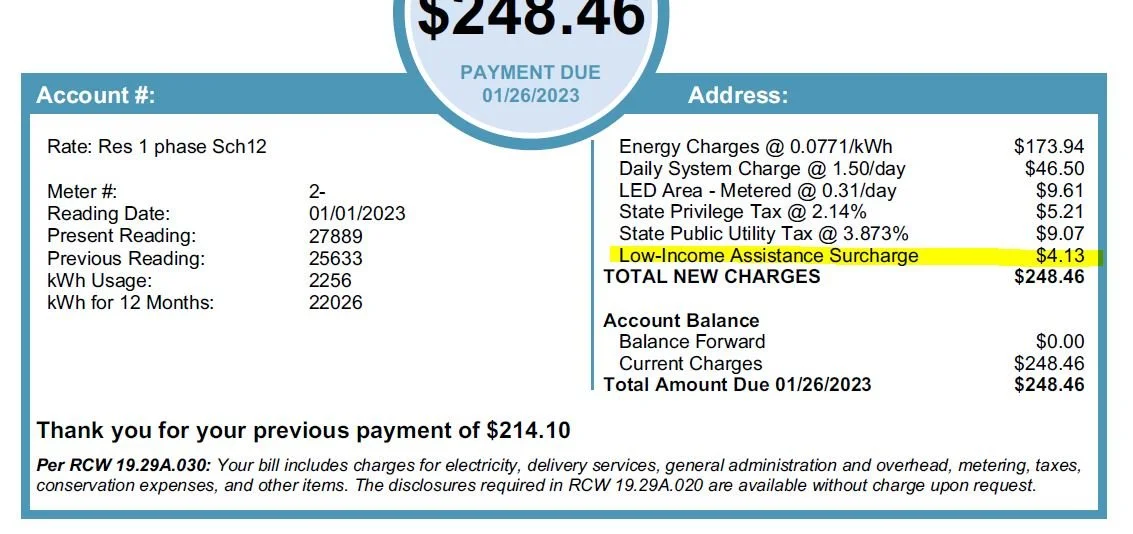A New Surcharge Line Item Will Begin on January Bills
Starting with billings in January, customers will begin seeing a new line item on their monthly PUD bill. The “Low-Income Assistance Surcharge” is a result of the PUD’s need to comply with the Washington State Clean Energy Transformation Act (CETA) legislation (RCW 19.405.120). The act itself is mainly focused on Clean Energy but one section of the bill (section 120) has a requirement applying to all utilities in Washington State to provide energy assistance to “low-income households with a priority given to those with a higher energy burden.” While this not entirely a new ‘charge,’ it is a new line item on the bill.
The surcharge will fund the PUD’s new and existing low-income programs. Since the PUD’s existing low-income programs (around since the early 80’s) did not meet the criteria of the new law, the PUD had to start a new Low-Income Energy Assistance Grant Program that would comply. However, commissioners thought it was important to allow participants currently enrolled in the existing programs to be grandfathered in.
To ensure compliance, the new Low-Income Energy Assistance Grant Program was created, and the cost of the new and old low-income programs will be recovered through a surcharge to customers which will fluctuate monthly but is estimated to be below $5.00 per month. In January, the cost will be $4.13.
Since the law also requires assurance of equitable distribution of benefits and a reduction of burdens to vulnerable populations and highly impacted communities, qualifying accounts will be exempt from sharing in the cost of the programs (i.e. the surcharge). This includes customer accounts participating in the low-income programs as well as LIHEAP or Project Share, and tribal accounts.
The PUD felt it was important to decouple the cost of these programs (a portion of which was previously covered in the energy rate through the PUD’s budget) and place it on a separate line item for transparency.
There is information on the PUD’s website at www.pud3.org/rates and you can also feel free to reach out to one of the following employees if you have specific questions about the surcharge or the requirements of the Act: Michele Patterson, Lynn Eaton, Sherry Speaks, Diane Hennessy, or Koral Miller.

